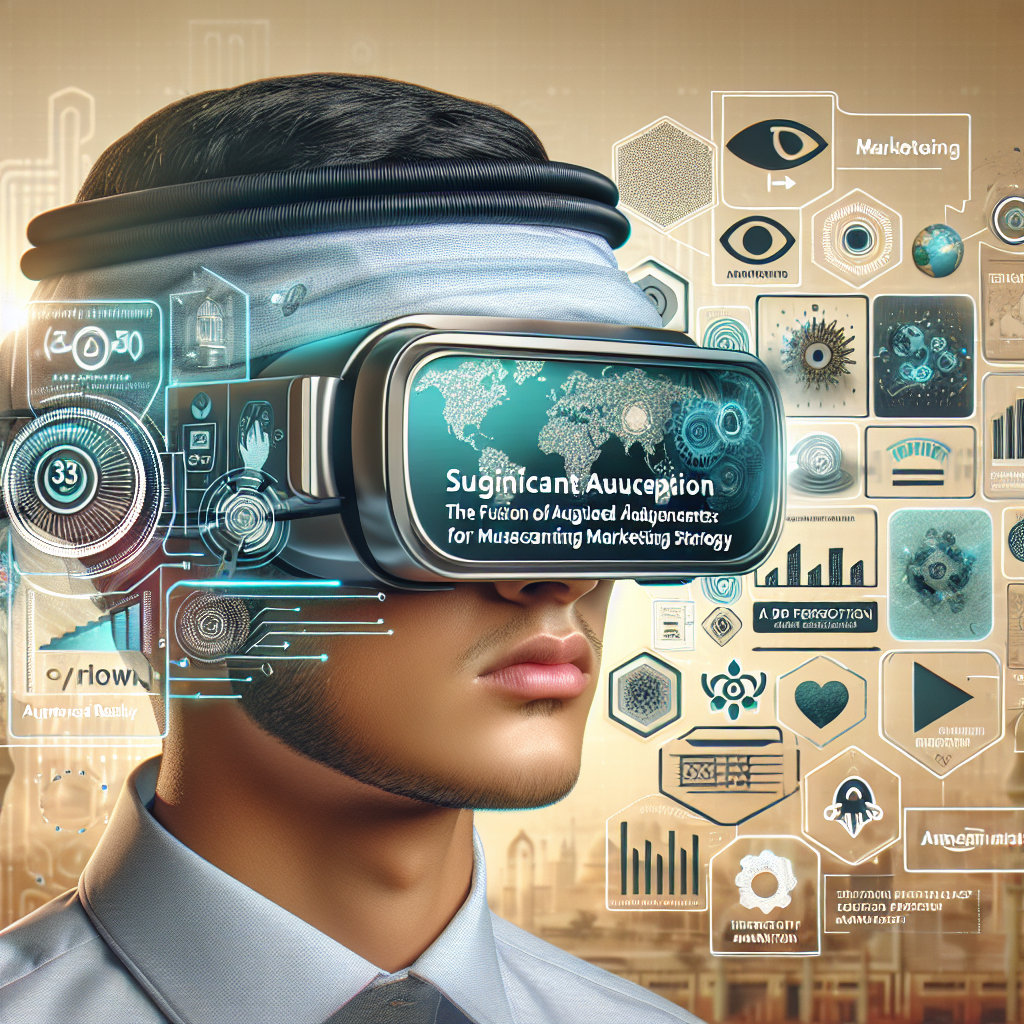Augmented reality (AR) has revolutionized the way businesses approach marketing campaigns. By blending digital elements with the real world, AR enables brands to create immersive and interactive experiences for their customers. From enhancing product demonstrations to bringing print ads to life, AR has opened up a world of possibilities for marketers. In this article, we will explore the real-world benefits of augmented reality in marketing campaigns and how brands can leverage this technology to drive engagement and ROI.
1. Enhanced Customer Engagement
One of the key benefits of using augmented reality in marketing campaigns is its ability to enhance customer engagement. By offering consumers an interactive and immersive experience, AR allows brands to create a deeper connection with their audience. Whether it’s a virtual try-on experience for a beauty brand or a 3D product demonstration for a tech company, AR can captivate customers and keep them engaged with the brand for longer periods of time.
2. Increased Brand Awareness
AR can also play a significant role in increasing brand awareness for businesses. By leveraging this technology in marketing campaigns, brands can create memorable experiences that resonate with their target audience. Whether it’s a branded AR filter on social media or an interactive pop-up event, AR can help brands stand out from the competition and leave a lasting impression on consumers.
3. Boosted Sales
Another real-world benefit of using augmented reality in marketing campaigns is the potential to boost sales. By providing customers with a more interactive and personalized shopping experience, AR can help drive conversions and increase sales. For example, a furniture retailer could use AR to allow customers to visualize how a piece of furniture would look in their home before making a purchase, leading to higher conversion rates and increased revenue.
4. Data-driven Insights
AR can also provide brands with valuable data-driven insights that can help improve their marketing campaigns. By tracking user interactions with AR experiences, brands can gain a better understanding of customer behavior and preferences. This data can then be used to optimize future campaigns and tailor messages to better resonate with the target audience.
5. Cost-effective Marketing
Despite the advanced technology involved, augmented reality can actually be a cost-effective marketing tool for businesses. Unlike traditional marketing methods that require expensive production and distribution costs, AR campaigns can often be created and launched at a fraction of the cost. With the proliferation of AR-enabled devices and platforms, brands can reach a wider audience without breaking the bank.
FAQs
Q: How can businesses get started with augmented reality in their marketing campaigns?
A: Businesses can start by identifying their goals and objectives for using AR in their marketing campaigns. Whether it’s increasing customer engagement, boosting brand awareness, or driving sales, having a clear strategy in place will help guide the implementation of AR technology. Businesses can then work with AR developers or agencies to create interactive experiences that align with their marketing goals.
Q: What types of marketing campaigns are best suited for augmented reality?
A: Augmented reality can be used in a wide range of marketing campaigns across various industries. Some popular applications of AR in marketing include virtual try-on experiences for fashion and beauty brands, 3D product demonstrations for tech companies, and interactive games or contests for consumer brands. The key is to tailor the AR experience to the target audience and align it with the brand’s overall marketing strategy.
Q: How can businesses measure the success of their augmented reality marketing campaigns?
A: There are several metrics that businesses can use to measure the success of their augmented reality marketing campaigns. These include engagement metrics such as time spent interacting with the AR experience, conversion rates, sales lift, brand awareness, and customer feedback. By tracking these metrics, businesses can gain insights into the effectiveness of their AR campaigns and make informed decisions for future marketing efforts.
In conclusion, augmented reality offers a wealth of benefits for businesses looking to enhance their marketing campaigns. From increased customer engagement and brand awareness to boosted sales and cost-effective marketing, AR can help brands create memorable experiences that resonate with their target audience. By leveraging this technology in their marketing strategies, businesses can stay ahead of the competition and drive meaningful results for their bottom line.
